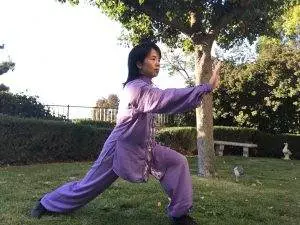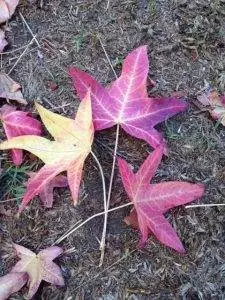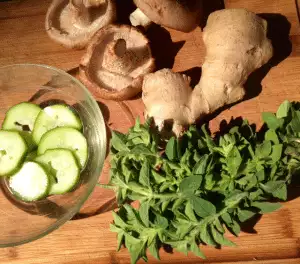-
 Art of Wellness Acupuncture & Traditional Chinese Medicine (TCM)11704 Wilshire Blvd, Suite 295, Los Angeles, CA, 90025
Art of Wellness Acupuncture & Traditional Chinese Medicine (TCM)11704 Wilshire Blvd, Suite 295, Los Angeles, CA, 90025
myartofwellness@gmail.com310-451-5522 Office Hours
MonClosedTue7:30 am --4 pmWed7:30 am --4 pmThu7:30 am -- 4 pmFri7:30 am -- 4 pmSat7:30 am -- 4 pmSunClosedOur office opens from Tuesdays to Saturdays 7:30 am to 4 pm, will be closed on Memorial day, Independent day, Labor day, Thanksgiving day, Christmas and New year.
-
Recent Posts
- Chinese New Year 2026: Year of the Horse
- Acupuncture and TCM Treatment for Perimenopause Symptoms
- How to Treat Insulin Resistance With Acupuncture and TCM
- How to Treat Metabolic Syndrome With Acupuncture and TCM
- How to Treat Syncope With Acupuncture and TCM
- How to Treat Thoracic Outlet Syndrome With Acupuncture and TCM
- How to Treat Dupuytren’s Contracture With Acupuncture and TCM
- How to Treat Nutcracker Syndrome With Acupuncture and TCM
- How to Treat Rosacea With Acupuncture and TCM
- How to Treat Perioral Dermatitis With Acupuncture and TCM
- Lymphatic Drainage With Acupuncture and TCM
- How to Treat Turf Toe With Acupuncture
- How to Treat Nerve Pain With Acupuncture and TCM
- How to Treat Watery Eyes With Acupuncture and TCM
- How to Treat Ovarian Cysts With Acupuncture and TCM
- How to Treat Dystonia With Acupuncture and TCM
- Sign up to receive news and updates and get my free report:“The Top 10 Reasons to Try Acupuncture”

December 2025 M T W T F S S 1 2 3 4 5 6 7 8 9 10 11 12 13 14 15 16 17 18 19 20 21 22 23 24 25 26 27 28 29 30 31
Health
New Year’s Cleaning & Detox
 By Xiaomei Cai, L.Ac., Ph.D.
By Xiaomei Cai, L.Ac., Ph.D.
The New Year is traditionally a time to re-focus our attention and energies. For many of us, this includes a renewed interest in our physical health. Taking the time and effort to “do a cleanse” may have become a trendy idea in recent years, but it is actually an age-old practice with many benefits.
Every day we are bombarded by toxins through processed foods, environmental pollution, chemical-based products, cell phones and devices, emotional and mental stress. All these toxic phenomena put tremendous pressure on the body. Toxins can cause us to feel foggy and fatigued, cause memory loss, anxiety, hair loss, weight gain, insomnia, constipation, hormone imbalance, rapid aging, and can even be one of the root causes of cancer and other diseases. It is so important to take time to detoxify the organ systems and get a fresh start. The Art of Wellness One-Week Detox program is an excellent way to cleanse the body and clear the mind.
Our Detox is not, like many store-bought products, just a colon cleanse. Following our program will release toxins from the deep tissues of the body, boost the functioning of the immune and liver systems, and strengthen Qi. The program works on several levels, using acupuncture, cupping, herbs (used internally and externally), nutrition and exercise.
The acupuncture portion of the program is designed to open up blocked pathways in the body, reestablishing connections between the organ systems. The herbal teas and patches will stimulate the kidney system and improve the functioning of the immune and reproductive . Herbal baths, aromatic and relaxing, also help to utilize one of the body’s most important excretory organs—the skin. Cupping treatments “vacuum” toxins from the lung, kidney and liver systems, while Tui Na and Qi Gong exercises massage the internal organs.
Detox participants will be given a food plan to follow for the week. This diet is not a fast; it consists of plenty of grains, greens and proteins, so it is both nourishing and filling. As Dr. Tan says, “hunger is not a solution.” The goal is to eat lots of clean, wholesome foods to strengthen the body during detoxification.
We recommend that everyone tries practicing a detox every six months for optimal health. Please call our office to get started on your New Year Detox Program to start a new, healthier year. We offer you our best wishes for your peace and wellness.
TCM for Cold and Flu Season
by Qineng Tan, L.Ac., Ph.D.
TCM has a history of treating illness going back thousands of years. One particularly famous doctor of the Ming dynasty (6th Century A.D.), named Sun Simiao, wrote a 30-volume encyclopedia called “Prescriptions for Emergencies Worth a Thousand Gold.” This work not only described herbal formulas (although it did detail over 4000 of them), but treatments for all types of conditions, including entire volumes on the care of women and children.
Sun Simiao was practicing during a time of widespread infectious disease in China, and he developed herbal treatments for all types of illnesses, including what he would have called “blood fever.” His pioneering work is the basis for treatments we still use today for treating viruses.
You have probably heard the stories about how, in the olden days, acupuncturists and herbalists did not charge their patients when they were sick–because it was their job to keep them healthy in the first place.
This is because we have known for a very long time that the best offense is a good defense. The best way to stay healthy and keep your loved ones healthy, whether it’s just another wintertime “cold and flu” season, or a global pandemic, is to be well-informed about prevention, how contagion spreads, and first steps to take when someone around you falls ill.
First, pay close attention to the changing of the seasons and how your body is affected. Dress appropriately for the cooler temperatures and brisk winds of the fall season. Don’t try to fight the early dying of the light each day. Instead, be gentle with yourself, and find seasonal routines that involve turning in early and rising with the sun. As always, drink tea for good health!
Regular acupuncture treatments help keep your entire body, especially the immune system, functioning at peak efficiency, so that when you come into contact with pathogens, your body is ready to fight them off quickly.
Here are some other things you can do to keep your immune system at the ready:
1. Get adequate rest.
2. Maintain a healthy diet, with as little processed/GMO food as possible.
3. Drink lots of clean water with good mineral content.
4. Avoid chemical medications that suppress your body’s natural functioning to overcome illness in the guise of “helping symptoms.”
5. Get plenty of exercise, fresh air, and sunlight–Vitamin D is very important.
To help stop contagious illness from spreading, you should, of course, wash your hands thoroughly and often. Pay attention to your sensations and intuition. If you start to feel run-down, weak, head-achey, or feverish, don’t dismiss it and try to push through your day. Slow down, and take it easy. Make an extra effort to avoid eating any junk food or consuming alcohol. Don’t drink caffeine, either, even if you think you need to keep your energy up. Caffeine produces false feelings of energy that can cause you to overexert yourself, when you should try to rest.
At this point in time, Western Medicine has no methods for treating viral infections. Most medicinal preparations are aimed at making the patient more comfortable, but none of them act as a cure, or even help the body’s own resistance. TCM herbal formulae, on the other hand, not only help reduce suffering from uncomfortable symptoms; they offer proven efficacy in helping to stave off and slow down the spread of pathogens in the body. They can also help for speedier and more thorough recovery from illness.
Nutrition for Heart Health OM Nutrition & Hypertension
 Oriental medicine (OM) nutrition combines ancient wisdom with modern science. OM nutrition is a holistic approach, which aims to balance all five flavors within most meals with one or two flavors being emphasized for therapeutic purposes. OM nutrition for a hypertension emphasizes bitter flavors, sour flavors and energetically-cooling foods.
Oriental medicine (OM) nutrition combines ancient wisdom with modern science. OM nutrition is a holistic approach, which aims to balance all five flavors within most meals with one or two flavors being emphasized for therapeutic purposes. OM nutrition for a hypertension emphasizes bitter flavors, sour flavors and energetically-cooling foods.
OM theory states the bitter flavor benefits the heart in moderation but an excess is harmful as it has a drying effect; for example, coffee is bitter. In moderation coffee acts as vasodilator increasing circulation but in excess it can raise blood pressure and has a diuretic effect. Modern scientific research has discovered while the human genome has 25 bitter taste receptors 12 of these are expressed in the human heart. continue reading
Eating to Reduce and Prevent Inflammation
By Xiaomei Cai, L.Ac., Ph.D.
We usually think of inflammation as something that affects our muscles and joints, causing them to swell and ache. More recently, science has made it clear that inflammation is also part of what causes poor blood flow through the arteries, causing problems of the circulation and the heart. But, really, the root cause of inflammation is a function of the metabolism, or digestive process. It is the body’s normal defensive response to excess internal heat. Excess heat can be caused by stres s, too many calories, and the wrong kinds of foods.
s, too many calories, and the wrong kinds of foods.
An anti-inflammatory diet is, first and foremost, a low calorie diet. The meaning of “calorie” is, after all, a unit measurement of heat energy. Simply put, ingesting more calories creates more heat in the body. If the calories aren’t being burned through physical activity, then they are stored in the body as excess fat. Fat not only weighs you down, but triggers the immune system, which tries to attack the fat as if it was a foreign substance. Carrying excess fat acts on several levels to create detrimental inflammation within the body.
It is important to pay attention not only to what you eat, and how much, but also how you eat, and when. Many people’s eating habits lead to poor digestion.
Eat sitting down. The body draws both blood and Qi into its center – the stomach and spleen – in order to digest food. Eating while standing or walking, or trying to concentrate on some other problem, draws much-needed energy to the extremities or the brain, away from the digestive process.
Chew food thoroughly. Failure to chew adequately means that the rest of your digestive system has to work harder to break down your food into usable nutrition.
In general, choose more fresh, raw, and lightly cooked foods, and avoid baked, fried and heavily processed foods. These foods retain the heat energy that was used in their preparation, and that creates more heat inside you.
Increase your use of ginger, turmeric and herbs like rosemary, thyme, and oregano, all of which have anti-inflammatory properties. Choose high Omega-fatty-acid fish such as salmon, and good quality fish oils. Eat lots of leafy greens. Avoid coffee, and drink green tea instead. Fermented foods such as pickles, sauerkraut/kimchee, miso and tempeh help to heal and promote good balance in the intestines. Shitake mushrooms are a source of copper, a rare nutrient, important in the prevention of arterial inflammation.
It probably comes as no surprise that we recommend cutting back on unhealthy fats (trans fats, processed cooking oils, and fatty red meat). And avoid sugar as strictly as possible, as sugar consumption leads to insulin resistance and is a major cause of inflammation.
Avoid the nightshade vegetables: peppers, eggplants, potatoes and tomatoes. This includes spices and seasonings made from peppers, such as paprika and red pepper flakes. These foods can irritate the intestines, affecting their permeability and setting off unwanted immune responses. These in turn lead to inflammation, muscle spasms and stiffness.
7 Ways to Communicate Healthy Habits to Your Kids

As the school year kicks back into gear so should the healthy habits that you and your children have before practiced. Notice how I said “practiced,” because we all know during the summer-vacation months we tend to indulge a little. Maybe you have had one too many backyard barbecues, or three too many trips to the favorite ice cream shop down the street. Whatever your summer vice may be don’t worry about it, you can regain those healthy habits from before and introduce them into your children’s lives! continue reading